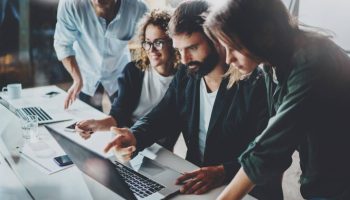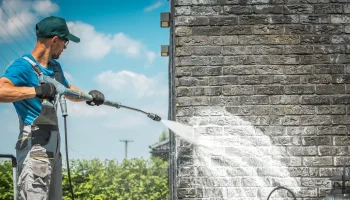In the world of fire safety, passive fire protection systems play a pivotal role. They act as silent guardians, much like oven mitts protecting your hands while baking cookies. These systems are designed to impede the rapid spread of flames during a fire, ultimately saving lives and reducing property damage. So, it’s no surprise that they’re a massive investment.
To ensure that you’re on top of everything, it helps to know that your services are in good hands. Let’s examine.
Why Passive Fire Protection Is In Demand
These systems may not be flashy, but they are indispensable. They include fire-resistant walls, doors, and floors, working discreetly behind the scenes. When a fire breaks out, they spring into action, halting the advancement of flames and smoke, buying precious time for evacuation and firefighting efforts.
Choosing the Right Contractor
Selecting the right contractor to install your passive fire protection is a crucial decision. Just as picking the right oven mitts matters for your cookie recipe, this choice can have far-reaching consequences during a fire.
You must avoid unqualified or unreliable contractors, as improper installation can be catastrophic. Look for these essential qualifications when making your choice:
1. Relevant Certifications
Proper and professional certification is a mark of expertise in the field. It assures you that the contractor knows what they’re doing. Contractors who are members of reliable government bodies are well-versed in the latest fire safety standards and practices.
2. Proper Licensing
Ensure the contractor holds all the necessary licenses to operate in your area, much like a baker needs permits to bake cookies. These qualifications signify their capability to keep your building safe.
3. Experience Matters
Experience is critical when selecting a contractor. You wouldn’t trust someone who’s never baked cookies to make a perfect batch. Similarly, look for contractors with a history in the field. They’ve encountered various situations and know how to handle them. Don’t forget to ask for references; these are like checking customer reviews for a baker’s cookies.
Getting a Quote
After finding potential contractors, it’s time to get quotes. This is akin to seeking price estimates for your desired cookies. When requesting a quote, you should expect:
- A detailed breakdown of costs, covering materials, labor, and additional expenses.
- An estimated project timeline.
- A clear explanation of the services included in the price.
Getting multiple quotes is crucial, similar to comparing prices at different bakeries to find the best deal. Keep in mind, the lowest price doesn’t always translate to the best quality.
Questions to Ask Your Potential Contractor
Asking the right questions is key to making an informed decision. Here are some crucial queries:
Can you provide references from previous clients?
This helps gauge the contractor’s reputation.
How do you stay updated with the latest fire safety codes and technologies?
You want a contractor committed to continuous learning.
What’s your approach to project management and quality control?
This gives you an idea of how they ensure top-notch work.
Can you explain the process and timeline for the installation?
Understanding the plan is essential for peace of mind.
What kind of warranty or post-installation support do you offer?
Knowing they stand by their work is reassuring.
What happens if something goes wrong during the installation?
It’s essential to know they have a backup plan.
These questions are akin to scrutinizing the ingredients and baking process when ordering cookies. Understanding what you’re getting into is paramount.
Conclusion
When it comes to passive fire protection systems, choosing the right contractor is paramount. Just as you wouldn’t compromise on oven mitts when baking cookies, don’t cut corners when it comes to your building’s safety.
Prioritize qualifications, experience, and references to ensure the best service. Fire safety is a matter of utmost importance, and the right contractor can make all the difference. So, choose wisely, as your safety and your building’s safety depend on it.







